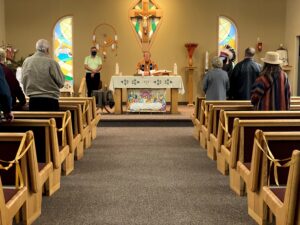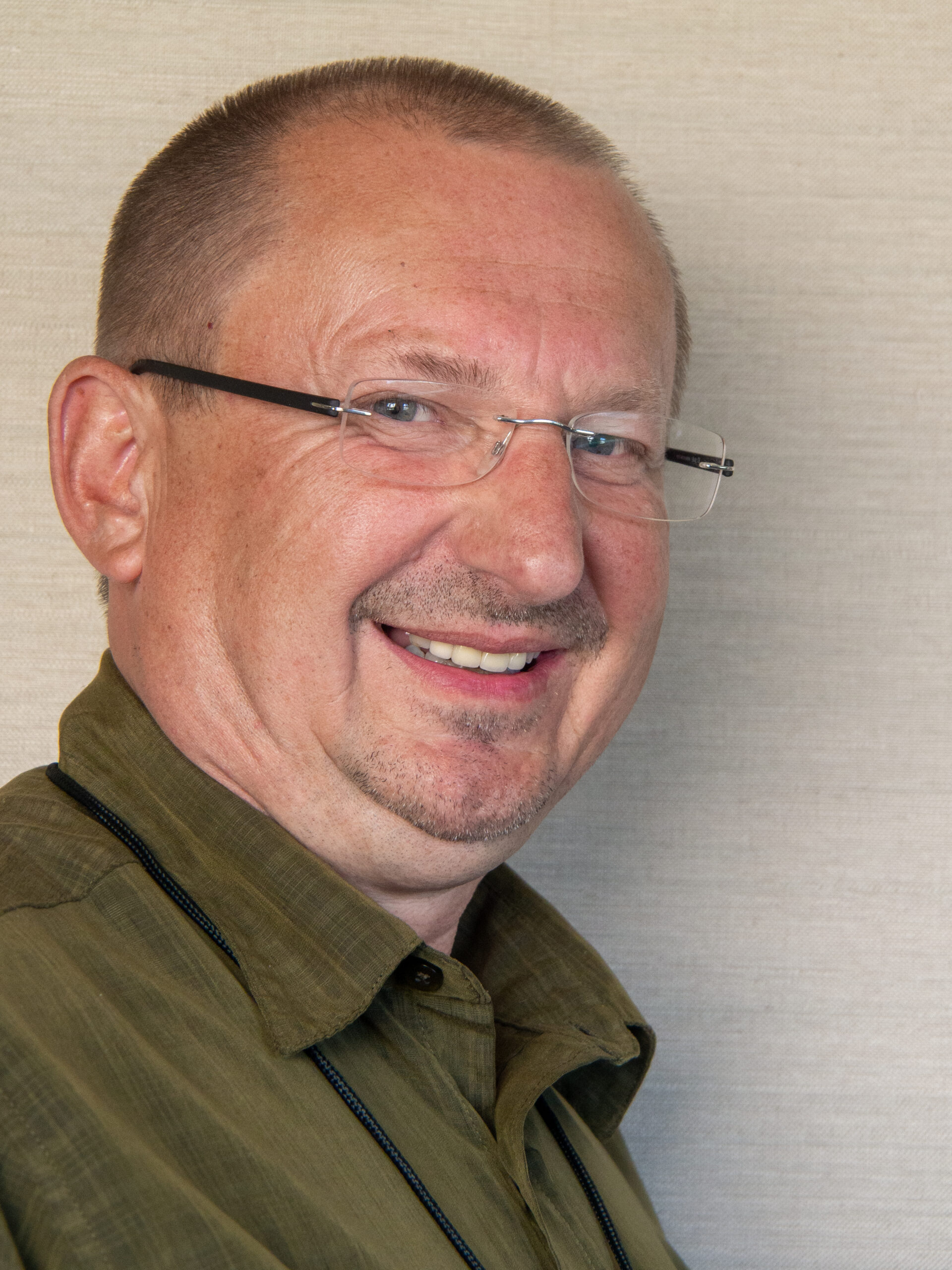Fr. Leszek Kwiatkowski, OMI
Recipient of the Queen’s Platinum Jubilee Award
Well, it finally happened. I had to miss a University class. I had to miss the first class of the semester in The Church and Indigenous People class. This class will focus on Reconciliation, primarily from the perspective of non-Indigenous Canadians and Catholics. We will spend time on the Truth and Reconciliation Commission, specifically Call to Action #48, as well as the United Nations Declaration on the Rights of Indigenous Peoples. It’s a sensitive topic to be sure, yet I feel that we do need to be able to speak to how we are working towards reconciliation, and this class will have us address this directly.
Coincidentally, I missed the class to attend an awards ceremony at which my dear friend Fr. Les Kwiatkowski received the Queen’s Platinum Jubilee award for his work with Indigenous People. What a blessing to have someone in my life like Father Les, who has quietly taught me about how to be in this space of hurt, healing, and hope. He may be surprised to hear that this is how I think about him. And perhaps many people will be surprised to hear that priests might teach us these things, but it is true.
 Since 1990, Fr. Les has been working with Indigenous people in various communities in Alberta and NWT. What makes this particularly significant is that Fr. Les is an Oblate. The Oblates of Mary Immaculate have a complicated past in terms of Reconciliation because of their involvement with Residential Schools, yet this does not stop him from serving Indigenous communities. Fr. Les has worked with the Dene in NWT, he has served on the Blood Reserve in southern Alberta, he has worked with the Big Stone Cree Nation people in Wabasca, and the Cree and Nakota Sioux in Lac St. Anne. As a Catholic priest, he serves humbly and becomes a welcome part of the community in which he lives. I have witnessed the warmth with which people accept him at the Pilgrimage in Lac St. Anne where they gather annually to honour St. Anne at the lake that has healing waters. He doesn’t know who nominated him for the award but it could be any number of people that have been touched by him as he quietly goes about his work.
Since 1990, Fr. Les has been working with Indigenous people in various communities in Alberta and NWT. What makes this particularly significant is that Fr. Les is an Oblate. The Oblates of Mary Immaculate have a complicated past in terms of Reconciliation because of their involvement with Residential Schools, yet this does not stop him from serving Indigenous communities. Fr. Les has worked with the Dene in NWT, he has served on the Blood Reserve in southern Alberta, he has worked with the Big Stone Cree Nation people in Wabasca, and the Cree and Nakota Sioux in Lac St. Anne. As a Catholic priest, he serves humbly and becomes a welcome part of the community in which he lives. I have witnessed the warmth with which people accept him at the Pilgrimage in Lac St. Anne where they gather annually to honour St. Anne at the lake that has healing waters. He doesn’t know who nominated him for the award but it could be any number of people that have been touched by him as he quietly goes about his work.
As I have worked with him over the past four years, I have learned about serving as well. On more than one occasion, Fr. Les has had to hold me back when I thought I had great ideas that would help people at Lac St. Anne during the pilgrimage or come up with suggestions for liturgies, prayer, or music. He reminds me that it must be up to the people to let us know what they need if they need anything at all. No, Serena, you can’t use an Indigenous ceremony in a way it was not intended. No, Serena, you can’t write a Stations of the Cross to reflect the Indigenous perspective without working with someone from the community. Well, of course, I can’t. But I thought I could try because I just want to help. Because I want healing and reconciliation and a relationship with the Indigenous, Métis and Inuit people I know. Because I want them to be reflected in the Church that I am a part of if they want to be a part of it. Because I want them to have healing.
Since I first learned about our Canadian history with these communities, I have wanted to make it all better. Some others feel the same way. We even hear the word “reconcili-action” floating around right now. The thing is, action is only part of what is needed, and it has to be done in the right way and at the right time, as Fr. Les so gently reminds me.
In the meantime, I will continue to learn. I will do it by spending time with the man who can teach me without saying anything. I will continue to learn through courses at St. Paul University where we can talk about UNDRIP. And I will continue to try and remember that healing and relationships will take time. Please don’t misunderstand me. I can appreciate how difficult talking about the Church and Indigenous People can be. I am part of a Church that I still need to forgive, myself. But we need to continue the journey toward reconciliation.
Thank you, Fr. Les, for all you have done for me, and for helping me on my journey. But most importantly, thank you for continuing to serve the people in your community. Your award is very well deserved.
By Serena Shaw


